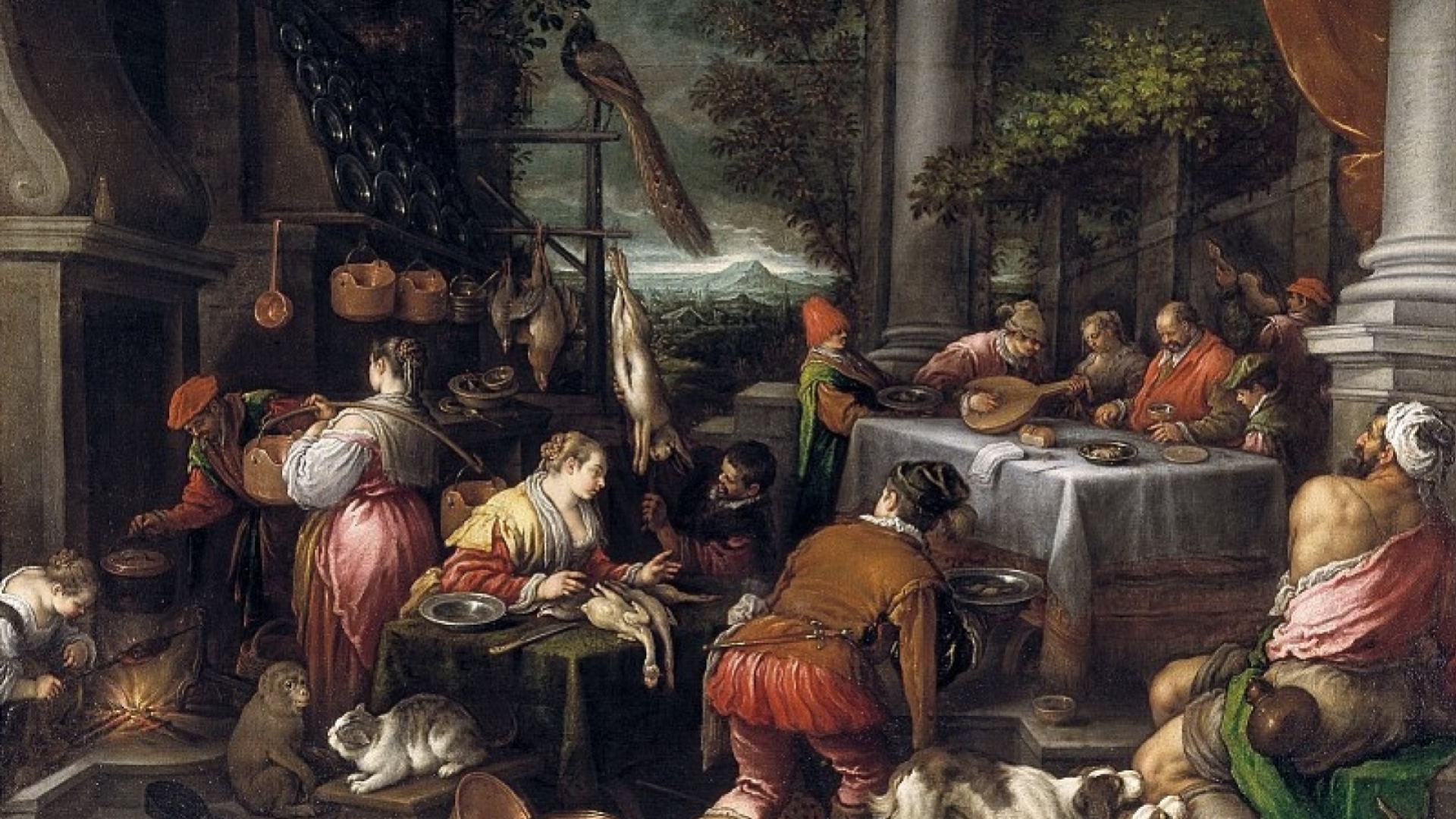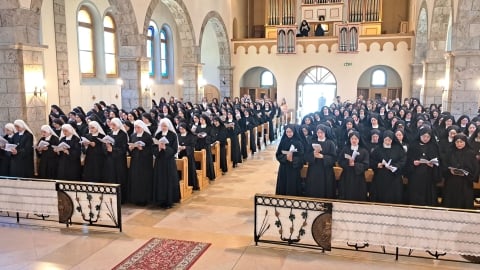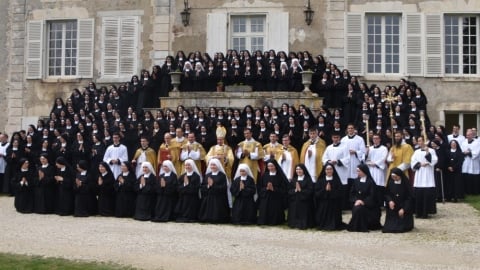Lent and the Spirit of Almsgiving

"The Rich Man and Lazarus" by Leandro Bassano, XVI century
What does the Church say about Almsgiving during Lent - and why is it so important?
In an earlier article on whether Catholics should consume artificial meat on Abstinence Days, readers were reminded “to remember the historic relationship between fasting and abstinence and almsgiving,” particularly since the “penitential periods and days of the Church were deemed times when Christians should take the money saved on food and distribute it to the poor.” This spiritual aspect of Lent, unfortunately, remains dimly understood.
When Catholics think of the Lenten season, their minds often turn toward the practices of fasting and abstinence. Hopefully they also consider this period a time for more fervent prayer, including making extra efforts to attend church services. Our Lord instructs, however, that almsgiving is interconnected with prayer and fasting (Mt. 6:1-25). And like prayer and fasting, almsgiving should be done in secret (Mt. 6:1-4):
Therefore when thou dost an almsdeed, sound not a trumpet before thee, as the hypocrites do in the synagogues and in the streets, that they may be honoured by men. Amen I say to you, they have received their reward. But when thou dost alms, let not thy left hand know what thy right hand doth. That thy alms may be in secret, and thy Father who seeth in secret will repay thee.
Following on Our Lord’s words, St. John the Apostle writes: “He that hath the substance of this world, and shall see his brother in need, and shall shut up his bowels from him: how doth the charity of God abide in him?” (1 Jn. 3:17). Recall that in its strongest formulation, Christ directed the young man seeking life everlasting to “go, sell whatsoever thou hast, and give to the poor, and thou shalt have treasure in heaven; and come, follow me” (Mk. 10:21).
Even if all are not prepared to follow Jesus’ radical admonition, St. Paul reminds us of the following (1 Tim. 6:6-10):
But godliness with contentment is great gain. For we brought nothing into this world: and certainly we can carry nothing out. But having food, and wherewith to be covered, with these we are content. For they that will become rich, fall into temptation, and into the snare of the devil, and into many unprofitable and hurtful desires, which drown men into destruction and perdition. For the desire of money is the root of all evils; which some coveting have erred from the faith, and have entangled themselves in many sorrows.
Many today will opine that they are not “rich” and therefore need not give of what they possess. Although the designation “rich” is in some sense relative, a vast majority of those living in the United States and the western world as a whole are far better off materially than most who lived during the period when Our Lord walked the earth. Some may also argue that they worked hard for what they have and hasn’t the Lord intended some to have and others to have not? To these and similar sentiments, the fourth century Cappadocian Church Father, St. Basil the Great, replies with the following in his sermon on Luke 13:21:
Is God unjust, dividing unequally the goods of this life? Why are you rich, while the other is poor? Isn’t it, if for no other reason, so that you can gain a reward for your kindness and faithful stewardship, and for him to be honored with the great virtue of patience? But you, having gathered everything inside the empty bosom of avarice, do you think that you wrong no one, while you rob so many people?
Who is the greedy person? It’s him, who doesn’t content himself with what he has. And who the thief? He who steals what belongs to others. And you think that you are not greedy, and that you do not rob others? What had been granted to you so that you might care for others, you claim for yourself.
He who strips a man of his clothes is to be called a thief. Is not he who, when he is able, fails to clothe the naked, worthy of no other title? The bread which you do not use is the bread of the hungry; the garment hanging in your wardrobe is the garment of him who is naked; the shoes that you do not wear are the shoes of the one who is barefoot; the money that you keep locked away is the money of the poor; the acts of charity that you do not perform are so many injustices that you commit.
What is important to remember is that neither Christ nor his saints furnished a “plan” or “schema” for giving; it is left for every Christian how best to decide to give of what he has. Everyday acts of mercy such as giving food and money directly to a poor person can be joined with communal efforts such as volunteering time and resources to a soup kitchen or donating gently used items such as clothes and furniture for distribution to the needy.
Prudence ought to be exercised as well. Those with families to support should not give to the extent that it risks the wellbeing of those they are charged to care for. Moreover, not every person seeking assistance is entitled to it. Discretion in almsgiving is recommended in the Apostolic Constitutions (II:1-63 & III:4-6): “Alms must not be given to the malicious, the intemperate, or the lazy; lest a premium should be set on vice.” However, such discretion should not become an excuse for judgmentalism or to withhold alms wantonly. As The Golden Legend recounts concerning the 7th century Patriarch of Alexandria, known as St. John the Almsgiver:
One time a poor man in pilgrim’s dress came to Blessed John and begged an alms. John called his steward and said: ‘Give him six gold pieces!’ The man took the money, went away and changed his clothes, came back and again begged alms of the patriarch, who called his steward and said: ‘Give him six gold pieces!’ After the beggar had left the steward told the patriarch: ‘That’s the second time today. All he did was change his clothes, but because you asked, I gave.’ Blessed John pretended not to know this.
The supposed pilgrim and beggar, however, changed his clothes and begged alms of John a third time. The steward touched the patriarch’s arm and nodded that this was the same man.
Blessed John responded: ‘Go and give him twelve gold pieces! It may be my Lord Jesus Christ, is testing me to see whether this man can go on asking more than I can go on giving!’
Like St. John, Catholics should take care to err on the side of charity not contempt. When presented with genuine uncertainty when giving alms, especially when it concerns a large sum of money, counsel should be sought from one’s confessor or spiritual father. Those who ignore almsgiving altogether during the Season of Lent or throughout the year do so to their spiritual detriment. They miss both an opportunity to assist their fellow man and grow deeper in holiness.
“Mercy and love of almsgiving are works that God loves,” observes St. Gregory of Nyssa in his homily on love for the poor. “They deify those who practice them and imprint upon them the likeness of the Good so that they become the image of the Divine Being.”
sspx.org - 03/08/2023





